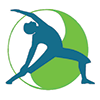July is Self Care Month
On July 24, the studio will celebrate International Self Care day, established in 2011 by The International Self-Care Foundation (ISF). Self-care is a crucial aspect of overall wellness and includes deliberate actions we take to maintain and improve our physical, mental, and emotional well-being. It’s about nurturing ourselves and addressing our needs across various dimensions of life. As an experienced life and grief coach, my work is rooted in the eight dimensions of wellness: emotional, physical, occupational, intellectual, financial, social, environmental, and spiritual. I help individuals recognize the interconnectedness of these dimensions and create strategies to focus awareness, attention, and effort in order to nurture self care.
Here are five essential tips for caring for yourself:
- Prioritize physical health: Engage in regular physical activity, maintain a balanced diet, and ensure you get adequate sleep. These fundamental practices form the foundation of good health and contribute significantly to your overall well-being. Yoga, Tai chi, running and walking are great opportunities to engage physically.
- Cultivate emotional awareness: Take time to acknowledge and express your feelings without judgment. Consider keeping a journal to record your thoughts and emotions, or find a trusted friend or support group where you can openly share your experiences.
- Establish a daily routine: Maintaining a consistent daily schedule can help reduce stress and provide a sense of stability. Include time for work, relaxation, social interactions, and personal pursuits to create a balanced lifestyle.
- Practice mindfulness: Incorporate activities like meditation, mindful living, or deep breathing into your daily routine. These practices can help you stay centered, manage stress, and improve your overall emotional well-being.
- Pursue intellectual stimulation: Engage in lifelong learning by exploring new ideas, reading books, or taking up a new hobby. This not only keeps your mind sharp but also contributes to a sense of personal growth and fulfillment.
Remember, self-care is not selfish; it’s essential for maintaining your health and well-being. By taking care of yourself, you’re better equipped to handle life’s challenges and support others around you. Regularly assess your needs across the eight dimensions of wellness and adjust your self-care practices accordingly to ensure you’re nurturing all aspects of your well-being.
Consider attending one of our sessions on self care this month:
Thursday July 18 – Self Care for Caregivers
Wednesday July 24 – Self Care for Everyone in person or online
July is Self Care Month Read More »

 In the training program leading to my certification as a
In the training program leading to my certification as a
 I am likely one of the world’s foremost experts in procrastination. Ok, maybe that is an exaggeration, but my office is never cleaner than when I am putting off a major task. Believe me, I would much rather vacuum, dust, straighten, and do all the other parts of organizing than put my effort behind something I need to finish that I just don’t want to do.
I am likely one of the world’s foremost experts in procrastination. Ok, maybe that is an exaggeration, but my office is never cleaner than when I am putting off a major task. Believe me, I would much rather vacuum, dust, straighten, and do all the other parts of organizing than put my effort behind something I need to finish that I just don’t want to do.